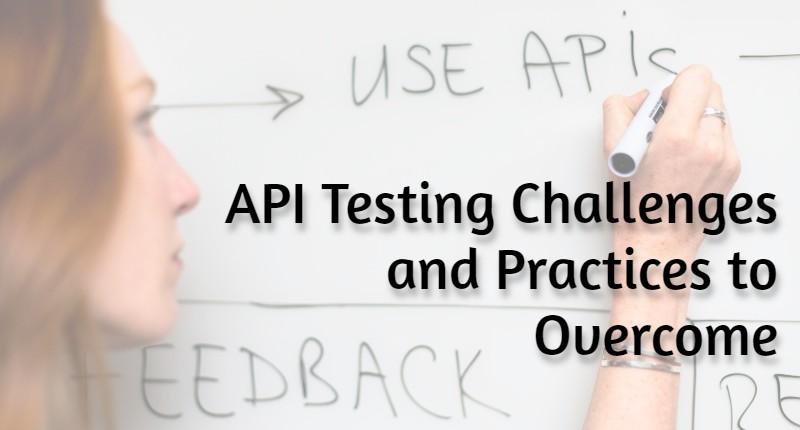The core part of testing web apps is the Application Programming Interface(API) Testing and It prescribes rules, routines, logic, and tools for establishing communication between different systems and applications. This testing requires testing programming interfaces directly to check if expectations are met for reliability, performance, and security. An API establishes the middle layer of a three-layered application pyramid and contains a data layer, a presentation layer, and a server layer. For businesses, data is very essential to make informed, customer-centric decisions. APIs sanction several inter-application communication channels and provide businesses with a competitive edge. At the time of testing, while implementing API, testing teams are majorly stressed when they get to come across critical challenges.
Some API Testing challenges are:
Test data management
Many APIs with their various parameters require a huge amount of data to test them effectively. Normally UI testing focused only on the functionality of the overall application and a tester gives input and validates the output against the expected outcome. Ensuring that the data is reusable and maintaining such a huge amount of data are a big challenge for API testers.
Knowledge of business app logic
APIs generally have a set of rules for their consumption such as copyright policies, storage policies, rate limits, and display policies. On the basis of overall business architecture logic, a set of rules are defined on which APIs are developed and integrated. The absence of knowledge and understanding of this business logic and rules among API testers lead to uncertainty about the test objectives.
Tracking API inventory
Many of the APIs involved in an application to act are independent of one other. While performing API testing, it gets challenging for testers to keep up with the rapid updates and how those updates impact the overall application. With low maintenance of the API inventory, tests fail in evaluating recent changes to the application and the APIs.
Complex Protocol
Interaction of APIs with each other through a set of rules is known as protocols. These protocols are complex and may prove as a barrier to the proper integration and testing of the communication between components.
Impact of API Versioning
A concern of rising problems in API testing is Versioning. Application programming interface must cope with the versioning from old to new, as maximum systems have a degree of depreciation.
To overcome the above challenges, a modern API approach should be adopted:
Phase 1:
Integration level of testing- In this phase integration level ensures the interface behavior and information sharing are working as specified.
Phase 2:
Process/Orchestration Testing- This phase concerns sequencing, Business logic, Exception handling, and process decomposition.
Phase 3:
Security and Governance Testing- In this test phase, SOA/ API is associated with Government and Regulatory compliance, which is incorporated into the project life cycle. This phase consists of quality of service policies on security, performance, and transactions.
Phase 4:
System-Level Testing- This test will cover even if the technical solution met the defined business acceptance criteria.




